- Home
- Kris Saknussemm
Sea Monkeys Page 7
Sea Monkeys Read online
Page 7
“Isn’t that lovely,” our mother said. “They’re really getting into the spirit of things.”
Meanwhile, just as she’d predicted, once the McMurtrys got all the way down to Carmel, they weren’t going to turn around and come home on Halloween. No, they stayed away while God’s own Haunted House Party raged—kids spewing in the bathroom, jack-o’-lantern cake smeared on the walls, Hershey’s Kisses crushed underfoot. We’d put down sheets to protect the furniture (and to add to the spooky ambience) but it was more or less total devastation from prunish older people’s points of view.
Best of all, we’d made a whole group of parents, who were just glad the festivities weren’t happening at their house, accomplices in the crime. When the shit hit the fan, and it did, we had a lot of shoulders to offload responsibility on. I’m only sorry my sister later went straight. She was the real deal when it came to the big con and could’ve conducted a mean briefing in the Situation Room.
It was a tough thing to lose that sense of partnership and collusion. Growing older will do that—we all move rather too easily from parent permission slips to promissory notes, without knowing how or why. Still, I think of her now and I see her with her sewing machine, paints and plans—or practicing the famous speech for class president in junior high, which ended with the rather too-memorable pep rally slogan, “Don’t be a slug stuck in the mire, jump with me, go higher and higher!”
I practiced that jump with her . . . not knowing how high I’d get one day or how far away I’d land.
LORD OF LORDS
Before he lost his faith in the church and became a kind of crackpot psychologist, my father was quite an inspiring preacher—although he had a humorous knack of confusing words at dramatic moments in such a way as “to bring the house down,” as my choir director mother put it.
He could, for instance, raise his arms in that gentle entreating way of his and request that the congregation all stand... “Please rise now and turn to face the person next to you . . . and give them the Piss of Keace.” (His “splash” of gin prior to each service may have had some influence on this tendency. I certainly always relished it when he would say things like, or try to say things like, “the Apocrypha and the Pseudepigrapha,” after his third splash. I didn’t know what he was talking about then, but it made me giggle.)
More than once he bewildered his attentive listeners with such variations on accepted wisdom as, “It’s easier for a rich man to go through the eye of a needle than it is for a camel to enter the kingdom of God.” (Once, the needle ended up in the camel’s eye, and another time, there were rich men searching for needles in heaven.) Despite some celebrated gaffes that caused an uproar of laughter, many slid by the majority of churchgoers only to end up in circulation around the Sunday afternoon dinner table, which invariably caused my father to spill gravy on his tie—such was his mixture of chagrin, disbelief and chuckling enjoyment at his own misstatements. You could never fault him for not being able to laugh at himself. As much as he loathed and shrunk and wilted at the slightest hint of a barbed criticism, if anything was ever funny, he’d laugh.
To his further credit, it must be said that he did excellent, heartfelt weddings and his Easter services were always exceptionally meaningful. There were clearly some key aspects of Christian theology that were at odds with his personal beliefs and anything along the lines of harping on doing good grated on him—but he could blow the hell out of a theme like the Resurrection and the Life. One could easily imagine the stained-glass windows coming to life on Easter Sunday.
My mother adopted a kind of player-coach role in the choir, often taking the solos for soprano (and sometimes for alto too). Although she could be abrasive, she always raised the standard. People kept in time and in tune, and if by some odd chance my father took to rambling, she had sufficient control of her team and music generally to be able to spontaneously introduce a piece that wasn’t listed on the hymn board. The songs never rocked as in a black Baptist church, but they occasionally soared and they never once sank or stank. (It would be impossible to count the number of thoroughly average people over the years my mother taught how to “dee-liver the message.”)
My father had no musical training whatsoever and not a clue about the volume and strength of his own voice (which could easily overwhelm the entire front row on even a packed morning)—and he often seemed to take a competitive stance toward the choir. Fortunately, he was gifted with a naturally pleasing voice, resonant and committed, with none of the “slushing and slurring” that so infuriated my mother in most others. At their best, they were a true President and First Lady partnership, and they were at their best when they were in partnership. Church was the family business and they were unquestionably good at it.
Which isn’t to say they didn’t have some considerable failures—of a relatively spectacular nature, given the context. I was involved in perhaps the biggest one, although I’m exceedingly relieved to say I wasn’t the weak leak in the chain. That role fell to little Grace Kenneally.
If you know anything about the Protestant racket, you’ll appreciate the savor of winning back some Catholics, and the Kenneallys were a big Catholic family (just like the Gages, who lived next door to us). Mr. Kenneally, whatever his first name was, was in retail and on the rise commercially. I don’t know what it was he sold, but it had something to do with housewares and he had a vast warehouse down on San Pablo and was always passing out business cards and making fine tactical use of the after-service coffee time to shake hands and pass out ever more cards (I always wondered where he kept them all). His wife looked continuously exhausted, as perhaps a mother of six well might—but she was extremely proud of her brood and her tight, clenched face would overly relax into a soft, doughy mass when any compliments on their dress or demeanor came her way. (I got brushed and mussed and primped each Sunday myself, but I think those kids got a full military inspection.)
Gracie was the bright light in the bunch. Horace was her twin (who in their right mind would name a child Horace?). They were my age. Sadly, Horace had a speech impediment, so when it came time to assign roles for the young children’s contribution to the annual Christmas pageant, my mother made the decision to feature Grace, as a gesture of compensation to the image-conscious Kenneallys. It took a great deal of restraint on her part not to force the starring role on me, but she knew the game and what was at stake. Mr. Kenneally placed real folding money in the collection trays that went around each service—and did so with great ceremony. Horace was hopeless at speaking a word in public; Grace got the nod. An understandable move.
It was my father who insisted that the pageant not be an isolated event in the Sunday school, but that instead, it be brought right into the main service for all to see. Let the little children come unto me. Truly I say to you, whoever does not receive the kingdom of God like a child will not enter it at all. Luke 18:17.
So, in my mother’s practiced wisdom, we practiced. We rehearsed our little asses off—for three full weeks. I had a line about the Wise Men following the star. Gracie had five lines . . . including the big finale. It was a call-and-response deal that Mom wrote herself. Dad would say, “And who is Christ?” . . . and Grace would answer, “He’s Lord of Lords and King of Kings.” Easy.
I don’t know how many times we went over that. It seemed endless. And poor Grace was forced by her earnest socialite mother to be forever repeating that grand end line even when we weren’t in rehearsal. One would’ve thought the child was going bonkers the way she was always mouthing it to herself and to those of us sentenced to the same Sunday school—where there was always much talk of the Lamb of God and the Lamb lying down with the Lion—and then lamb served at the dinner table only a couple of hours later.
Well, not surprisingly, the sanctuary was full to fire regulation limits on the day in question. My parents didn’t mess around when it came to drumming up a crowd—or rather a congregation. My father even went as far as to initiate a free pancake breakfast on the
same day, as a lure to the street people, who were beginning to show distinct signs of an increase in numbers. There was going to be no question that the Christmas pageant would be well attended, slackers or not. Every inch of every pew was crammed with flesh, however willing, whatever way their spirits were inclined. I’ve never smelled so much perfume and cologne in my life—which was a good thing as some of the park sleepers who took up the back rows more than balanced the equation, with body odor, felt, weary old denim, scabies skin and maple syrup.
It started out rough, when my father asked the assembled children, “Whose birthday are we celebrating today?” Billy Piper was quick to raise his hand and announce, “Mine!”
That got everyone snickering and threw off the timing of the recitals, but my mother icily reined us all back in. Slowly we made our way through the script, as the congregation shuffled patiently in the pews, eyes wide and hopeful that we’d pull off our respective parts.
And we did. We dee-livered the message, as my mother would say. I got my star over the manger. Young Horace, somewhat thick of tongue and thicker of mind, managed to raise his branch of holly at the correct moment. Gracie shone. In fact, we got some black rouse out of a mainly white house . . . until . . . until the grand finale.
I looked over at my father, thankful I hadn’t messed up my line, knowing that he was ever mindful of my mother, watching over all of us like the proverbial hawk. One step away from total success. One simple question in what he could make sound like a big, booming voice. One simple answer from Gracie—and we’d be done. We’d have blistered it. Applause in church, which is unusual for white people. We’d be heroes—or at least have passed muster in my mother’s eyes—one step away from the covered part of the church courtyard and the remains of the pancake breakfast anyway.
So, my father stepped theatrically forward, right on cue, steady as he goes (it was definitely but a one-splash morning). “And who is Christ?”
Cue to Gracie . . .
The whole congregation, even the street people, who were a little rowdy and unused to the stained-glass and organ ritual, went stone still.
Grace, who’d done so well up to this point, suddenly paused. Her face froze over with an expression of pure terror. She’d forgotten the line. Gone.
There was a moment of awkward silence verging on pain . . . and then people started shifting and murmuring. Jesus, that sound can only be so loud in church.
My father, ever the optimist, didn’t grasp the nature of the crisis. He didn’t realize Gracie’s mind had gone completely blank. He thought it was just an opportunity to enhance the theater of the performance. He tried again . . .
“And WHO is Christ?”
“He’s Lord of Lords . . . and . . . ”
And? And? And . . . ?
Gracie just didn’t have the line—the final line. The closer! The cue for the organist and the choir. Everything was stopped. Stalled. Dead in the water. The street people were getting restless.
I watched my father peer over quickly at my mother, looming before her robed choir. It was beginning to dawn on him how serious the situation was. The Kenneallys (the entire clan other than Grace and Horace) were in the front row—and they were squirming with anxiety of the purest kind. Mr. Kenneally’s face had clouded over so darkly it looked like he’d never pass out another business card again. Mrs. Kenneally looked so clenched it seemed like she’d never pass water again. And one of the more degenerate street people my father, in his enthusiasm for the event, had invited in to witness the celebration of Christ’s birth, was mumbling something about “Lord of the Bored” back near the doors.
My mother gave Dad one of her most piercing glances, as if to say, “This is all your fault—you never should’ve let those people in here.”
Of course it was too late to worry about that, and my father was never one to worry about a bad decision anyway—things would work out. He’d just try the line again.
And so he did. Same response. No response. Worse response! One of the ushers actually laughed. I heard my mother clear her throat (never a good sign). The fuse had been lit. She was fuming! She was about to cue the organist. She was about to unleash the choir to cover the debacle. The pageant was in disarray. There’d be hell to pay for this. Disaster. Apocalypse!
And then . . . and then . . .
Then I saw a glimmer of illumination in Gracie’s eyes. The penny had dropped. She’d recovered. The horror was past. Her stage fright had evaporated. She’d remembered the words. She was going to pull the line and all of us out of the fire. She was back in time and in tune, and she was going to proudly let it rip with all her heart. My mother always said, “If you can say it—and you will say it—then sing it out! Make people sit up and take notice. This is not about being an eeny weeny quiet little mouse—this is about making the people in the back row know you’re alive!”
Gracie gave a slight but confident nod to my father. Cue me again. Have faith in me. She nodded to my father, who had faith in scabbed people scratching themselves audibly. She put it right back onto him, the one person in that whole high-ceilinged room who would never have gotten into a fight but who would never, ever have knocked back any dare if it came to a matter of faith and a possible good outcome. My father knew he’d been challenged where he lived—and he stepped right in close and dee-livered that cue line as if he’d never said it before . . .
“Tell me, Grace, who is Christ?”
“He’s Lord of Lords!” Gracie belted out.
“Yes?” my father interjected for theatrical effect. “Yes . . . ?”
Gracie screwed up her pretty little face and literally bellowed . . . “And . . . HE’S KING OF THE JUNGLE!”
Faster than you can blink, my mother flagged her arm and commanded the organist and her choir to hit it—the Hallelujah Chorus at full bore. But not even that onslaught of music could drown out the laughter or the awful mechanical and pastry settling sound of the retraction of the Kenneallys’ egos. It couldn’t even outdo my father’s own hilarity. He buckled over double in his shiny ministerial robe and just plain guffawed in weeping gratitude for this new insight on the nature of Christ Our Lord. He chortled. He whinnied. He held nothing back. I tell you, if it was funny, my father laughed and you did too. And if it was very funny, then he gave birth to some new emotion, right in front of you.
“I knew it!” one of the homeless men shouted with Old Testament conviction and then proceeded to give a spirited roar for the Christ child. My mother did her best to lift the decibel level of the choir, but she couldn’t match the lion’s roar—or the further explosion of mirth it triggered in my father. I doubt seriously if any church has ever shaken with so much joyful noise. People were physically clutching their stomachs trying to contain themselves.
What followed was decidedly different. The Kenneallys made it through the after-service Christmas party with a grim, stoic calm (without Mr. Kenneally passing out a single business card). They were never seen in church again, which is a sad ending to the story, for little Gracie had done exactly as my mother had instructed. Plus, King of the Jungle has a nice ring to it—and very possibly a lot more Christmas spirit than King of Kings, which to my ears sounded a bit too much like one of Mr. Kenneally’s ad slogans.
To make matters even more pointed, my father mistakenly tried to sum up the proceedings and smooth things over once we were back at home and seated at dinner, by remarking as philosophically as he could sound, “Well, you know what they say about show business. Never work with kids or children.”
To which my mother replied with a frosted glare, “The line is, never work with kids or animals, dear.”
Of course that only got my sister and me started once more. I think it’s safe to say the gravy fairly flew that day.
For years after, the very softest suggestion of anything even vaguely like “King of the Jungle” would bring up my father’s belly laugh, tears streaming down his face. From that day forth, we were never without a means to cheer ours
elves up at short notice. And as it turns out, we’d damn well need it.
HEAT LIGHTNING
We trapped fireflies at dusk in what my aunt with the palsy called relaxing jars, and cheered when Tarzan killed a giant spider on the white sheet stretched between two trees, the heat lightning flickering for miles beyond the town’s big water tower.
All summer long I lay awake with cousins I was never going to see again, whispering and listening to Motown music, pressed against the cool bricks in the basement that smelled like the lawn mower and the pumice soap my uncle used after changing oil.
My uncle was famous for rescuing a drowning boy without even dropping his pipe, then killing a woman a week to the day later on a golf course. He hooked his drive and hit her hard in the temple and she keeled over in front of the clubhouse, dead. It’s true, I swear to God.
Every night, he’d poke his head down the stairs to see if we were asleep and my cousin would have to twist in bed to silence the radio. Then we’d hold our breath for what seemed like the whole summer until we heard the footsteps fading away.
On my last night, we let all our fireflies free in the basement, so we’d have our own lightning, and we stayed awake till dawn, making promises—wondering what was going to happen to us next summer, and the next summer, and the summer after that.
JOSEPH COTTEN
For years I lived in fear of the monster that I believed emerged from a pond in the movie Hush, Hush, Sweet Charlotte. I could hear the eerie song echoing in my head from some movie preview . . . visions and memory scent of the Grand Lake theater in Oakland or the Oaks in Berkeley . . . scenes and shadows seemingly cast on the cavernous walls of Larry Blake’s restaurant, where everyone in the family ate salad but me. I see the old decaying house and the long spiraling staircase from the monster’s point of view as it climbs the steps, dripping leaves and mud . . . some awful shape of nightmare curiosity . . .

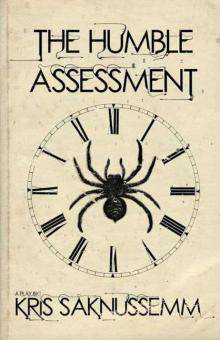 The Humble Assessment
The Humble Assessment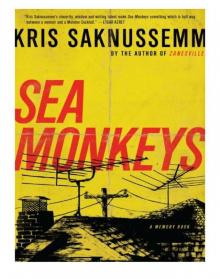 Sea Monkeys
Sea Monkeys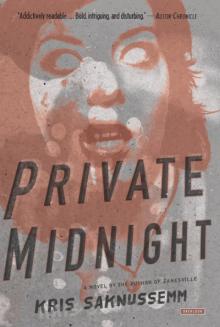 Private Midnight
Private Midnight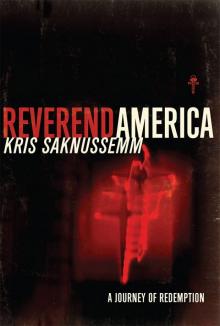 Reverend America: A Journey of Redemption
Reverend America: A Journey of Redemption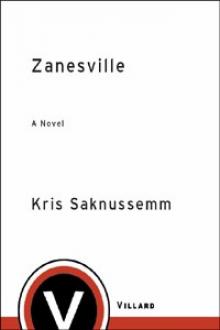 Zanesville: A Novel
Zanesville: A Novel